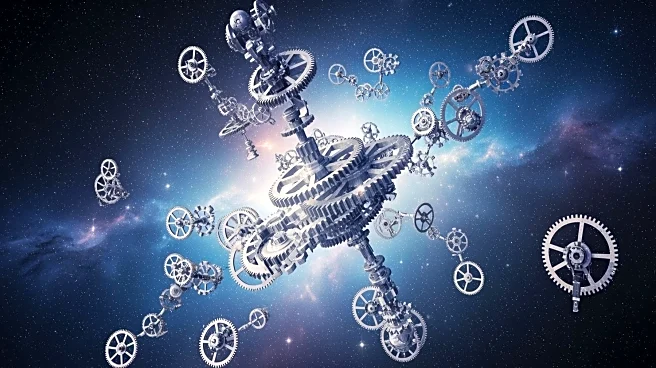What's Happening?
Researchers from UBC Okanagan, led by Dr. Mir Faizal, have mathematically proven that the universe cannot be a computer simulation. The study, published in the Journal of Holography Applications in Physics,
demonstrates that the fundamental nature of reality operates beyond the capabilities of any algorithmic computation. The team used mathematical theorems, including Gödel's incompleteness theorem, to show that a complete and consistent description of reality requires non-algorithmic understanding, which cannot be simulated. This research challenges the long-held hypothesis that the universe might be a simulation, bringing the debate into the realm of mathematics and physics.
Why It's Important?
The findings have significant implications for the field of physics and the understanding of reality. By proving that the universe cannot be simulated, the research challenges philosophical and scientific assumptions about the nature of existence. It suggests that the fundamental laws of physics are more profound than previously thought, requiring non-algorithmic understanding beyond computational theories. This could influence future scientific inquiries and theories about the universe, potentially reshaping the approach to studying the cosmos and the development of a theory of everything.
What's Next?
The research opens new avenues for exploring the nature of reality and the fundamental laws of physics. Scientists may need to reconsider the role of computation in understanding the universe and focus on non-algorithmic approaches. This could lead to new theoretical frameworks and experimental methods in physics, as researchers seek to understand the deeper aspects of reality that cannot be captured by current computational models.
Beyond the Headlines
The study highlights the limitations of algorithmic computation in describing reality, suggesting that the universe operates on principles that transcend traditional scientific methods. This raises ethical and philosophical questions about the nature of existence and the pursuit of knowledge. It challenges the notion that all phenomena can be understood through computation, prompting a reevaluation of scientific paradigms and the role of human understanding in exploring the universe.








